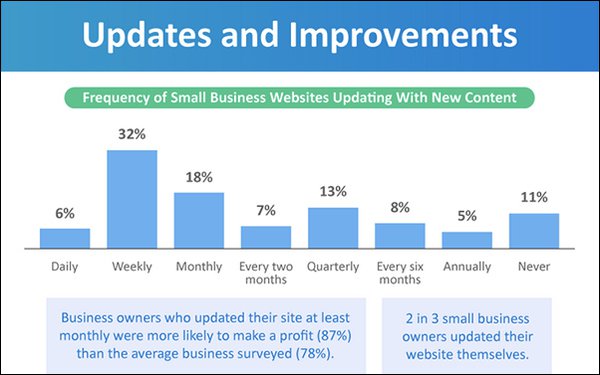
Prior to the pandemic, one in four business
owners without a website thought they would never need one. The irony, one in five consumers said they were more likely to buy from a business with a website.
For many consumers, simply
having a website isn’t enough to convince them to patronize a business. Many also have standards for what appears on the website of a business and how that information is laid out.
The Best SEO Companies survey fielded responses from 1,005 people using the Amazon MTurk and Prolific survey platforms,
about 260 small business owners and 745 consumers. Some 523 respondents were male, 481 respondents were female, and one respondent did not identify as male or female.
Seven in 10 businesses
without a website relied primarily on social media instead. For some, it's much more popular than managing a website. In fact, 55% said social media was the most effective platform for their
business, followed by 29% for websites, 4% for Google business listing, 2% cited Yelp, and 10% cited other online listings.
When asked how important is the website to your business,
29% said essential, 26% said very important, 22% said moderately important, 15% slightly important, and 9% not at all important.
When consumers research businesses online, 82% go to
Google, 76% find the website of the business, 55% go to social media, 35% go to Yelp, and 30% rely on Google Maps.
What's the most important information on a website differs
depending on the consumer, but overall, 70% of consumers rated informative product descriptions as most important. Some 66% want the appearance of trustworthiness, 65% cited high-quality product
photos, 65% want clear shipping and return policies posted, 64% look for customer or user reviews, 58% cite easy navigation, 56% ease of use, 47%, variety of payment options, 44% overall design, and
more.
advertisement
advertisement
The website options reducing the likelihood a consumer will buy from a website varies: 65% cited poor quality photos; 61%, difficulty finding information; 55%, out of stock
products; 52%, said few signs of life; 52%, obvious errors; 49% cited spam content; 44% pointed to certificate errors; 42%, dated design; 39%, limited information; and 34% cited lack of contact
information.
Women were 13 percentage points more likely to indicate clear shipping and return policies were important, compared with men, and 17 percentage points more likely than men to
value clear use and navigation.
According to the small business owners participating in the survey, 32% said updating their websites weekly, and another 18% posted new content at least
monthly.
While 11% admitted to never updating the information on their websites, more than 30% of small business owners acknowledged only renewing their content somewhere between every
two months and once a year.
Just 6% of business owners updated the data on their websites daily. While consumers need to know a site is active, it’s also helpful for business owners to
reevaluate their online presence to ensure they’re using current marketing trends in the way data is presented, particularly if they offer online sales.
Business owners who
updated their website at least once a month were more likely to report being profitable during the COVID-19 pandemic. Two in three business owners also update their websites on their own, proving
it doesn’t have to be an expensive undertaking.